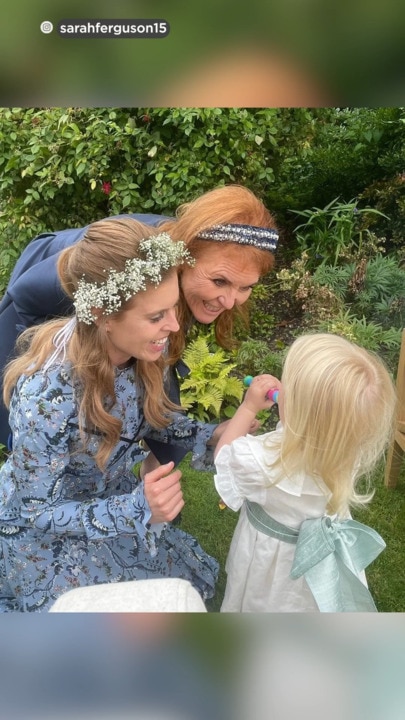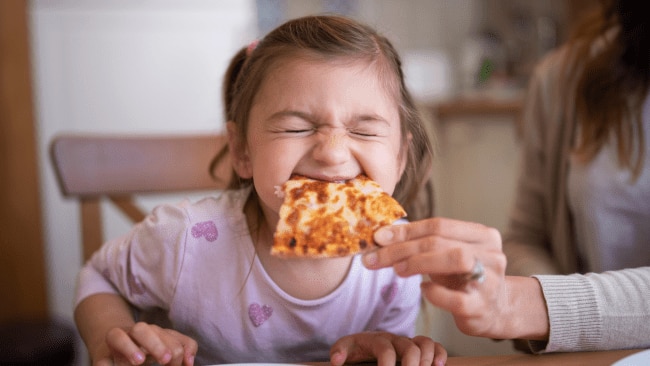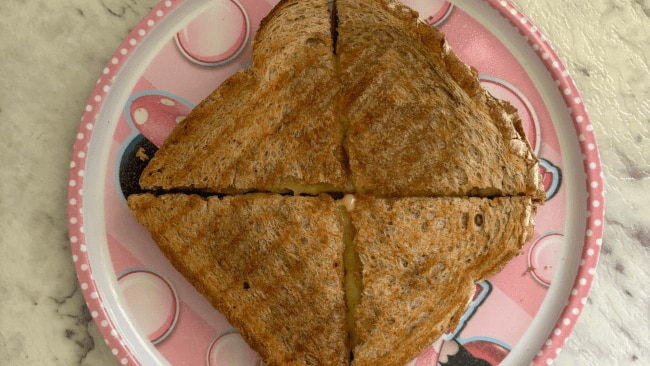My son was bitten at daycare and I want to confront the parents
'Although the daycare teachers won’t tell me who the perpetrator is, I think I have a fairly good idea.'

Parenting
Don't miss out on the headlines from Parenting. Followed categories will be added to My News.
Do you have an anonymous question you desperately need answered? Submit it to our Advice Needed column.
Advice Needed
My son has been bitten at daycare a couple of times now and although the daycare teachers won’t tell me who the perpetrator is, I think I have a fairly good idea.
Is it OK for me to approach the parents?
Want to join the family? Sign up to our Kidspot newsletter for more stories like this.

RELATED: My wife told my son to ‘get out of the picture’
Advice from the Kidspot Editor, Emily
OK, ease up there cowboy. While I understand it can be deeply upsetting to find bite marks on your child, you’re not Liam Neeson and this isn’t Taken.
Realistically, what is talking to the other parents going to achieve aside from making them feel awful and you look aggressive? Because take it from me, biting is not a habit I have seen any parent ever, ever encourage. If anything, they are deeply troubled by it and riddled with guilt.
Once I was away with a group of friends, two of whom had babies of the same age - a little boy (the biter) and a little girl (the bitee). Now at this stage we had something like four kids between eight adults. You’d think between all of us we would be able to keep an eye on the situation - especially considering both were crawling and not particularly fast.
Tell you what. Kids are sneaky. Over the course of the weekend the girl got bitten maybe three to four times, much to the dismay of both sets of parents. Both felt victimised, both felt terrible - but only one felt shame, even though they needn’t have.
Introducing our new podcast: Mum Club! Listen and subscribe wherever you get your podcasts so you never miss an episode.
RELATED: I found a good ‘dumb phone’ for your teen
Biting is a typical phase of baby and toddlerhood - albeit a tough one - and is simply part of a child’s development. It could be teething, it could be curiosity, maybe your kid tastes particularly nice (too soon?) but there’s not really much anyone can do about it.
If anything, I would speak to the childcare educators and ask them to keep your child and the little zombie apart as much as possible. If things persist you could ask them to outline any other suggestions (they are seasoned professionals and this is not their first biting rodeo) but it’s not like a baby muzzle exists - and no, don’t get any ideas.
As for the parents? Please leave them alone. Trust me, they know they have a biter. And trust me on this even more - they feel bad enough as it is without you chewing their ear off.
Dr Justin's do's and don'ts
According to Dr Justin Coulson, there are a few things you can do if your child bites - and a few things you shouldn't do.
Don't
1. Whatever you do, don't bite him back. He may learn several things by being bitten, but 'don't bite' will not be one of them. He may learn that you can hurt him, and that you do not understand him. He will almost certainly not learn not to bite others. He will not link you biting him with his prior behaviour. He is too young to make that association
2. Don't punish him. Once again, punishment will not teach him. Nor will it show that you have any desire to understand him or help him. It will simply teach him that his parents are not looking out for him except to hurt him. And he will learn to behave aggressively towards others over whom he has power.
Do
1. Offer to help the victim. Unless a child is remaining aggressive and dangerous (which is unusual) this should be your first action any time a child hurts others. Comfort and help the person who has been hurt.
2. Remove the offending child - kindly. Take the child somewhere private and offer them comfort. Yes, I know this sounds weird. Why comfort a child who just did something horrid? Two reasons. First, when children are frightened or upset they don't learn from us very well. We want him to be calm and feel safe. Second, at this age, he is probably a little scared about what he just did, how it led to such a horrible outcome for his playmate, and what it all means. This is all new. By taking him out of the room and offering him some private comfort, you can help him be prepared to learn.
3. Explain and teach, firmly but kindly. Let your little boy know that biting hurts. Tell him not to bite, but to be gentle instead. Depending on the age of the child you might also ask questions to help him think through alternative ways of getting attention or dealing with conflict with a playmate.
4. Finally, offer alternative activities that don't require competition or conflict. Get them active, provide additional toys, play music, or re-direct their focus in other ways.
More Coverage
Originally published as My son was bitten at daycare and I want to confront the parents





